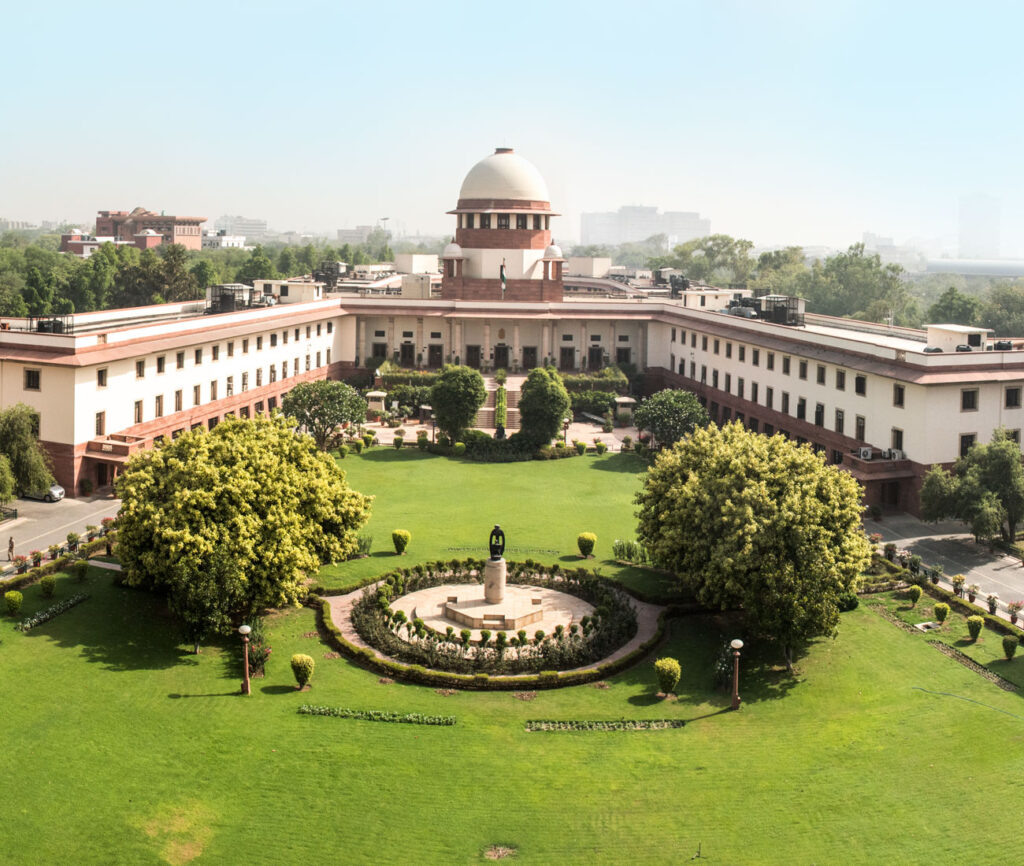New Delhi, Feb 15.
Right to information of a voter includes the right to information of financial contributions to a political party because of the influence of money in electoral politics and governmental decisions, through a seat at the table and quid pro quo arrangements between the contributor and the political party, the Supreme Court said on Thursday.
Information about political funding would enable a voter to assess if there is a correlation between policy making and financial contributions, the court said.
For the information on donor contributions to be relevant and essential, it is not necessary that voters have to take the initiative to peruse the list of contributors to find relevant information which would enable them to cast their vote effectively, a five-judge bench led by Chief Justice of India D.Y. Chandrachud said.
“… deletion of the mandate of disclosing the particulars of contributions violates the right to information of the voter since they would not possess information about the political party to which the contribution was made which… is necessary to identify corruption and quid pro quo transactions in governance. Such information is also necessary for exercising an informed vote.”
Voters have a right to information which would enable them to cast their votes rationally and intelligently because voting is one of the foremost forms of democratic participation, the court said.
In a politically equal society, the citizens must have an equal voice to influence the political process, it said. Influence of money over electoral politics is not limited to its impact over electoral outcomes. It also spills over to governmental decisions, the bench said.
“Economic inequality leads to differing levels of political engagement because of the deep association between money and politics.”
At a primary level, political contributions give a “seat at the table” to the contributor, the court observed. This access also translates into influence over policy-making.
An economically affluent person has a higher ability to make financial contributions to political parties, and there is a legitimate possibility that financial contribution to a political party would lead to quid pro quo arrangements because of the close nexus between money and politics, the court said.
Quid pro quo arrangements could be in the form of introducing a policy change, or granting a license to the contributor, it said.
The money that is contributed could not only influence electoral outcomes but also policies particularly because contributions are not merely limited to the campaign or pre-campaign period.
Financial contributions could be made even after a political party or coalition of parties form a government. The possibility of a quid pro quo arrangement in such situations is even higher, the bench said. Money also creates an exclusionary impact by reducing the democratic space for participation of both candidates and newer and smaller political parties.
The bench, however, shot down a plea to protect disclosure of information on contributors. “We are unable to see how the disclosure of information about contributors to the political party to which the contribution is made would infringe political expression.
“The disclosure of the particulars of the contributions may affect the freedom of individuals to the limited extent that the political party with the information could coerce those who have not contributed to them.
“However, we have already held above that the scheme only grants de jure and not de facto confidentiality vis-à-vis the political party. Under the current Scheme, it is still open to the political party to coerce persons to contribute.”
“Thus, the argument of the Union of India that the electoral bond scheme protects the confidentiality of the contributor akin to the system of secret ballot is erroneous.”

